Nuclear Iran Will Destabilize Entire World, Lapid Says In Germany
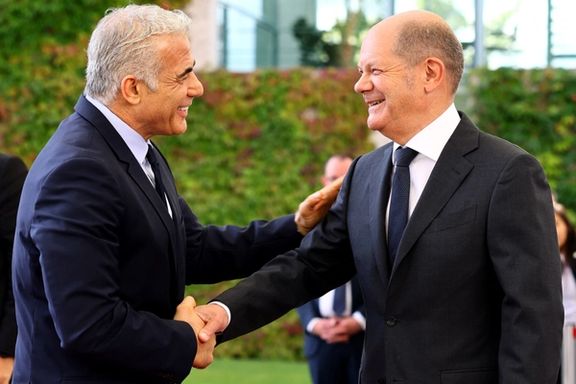
Israeli Prime Minister Yair Lapid, who is on a state visit to Germany, reiterated Monday that the revival of the 2015 nuclear deal with Iran would be a "crucial mistake."

Israeli Prime Minister Yair Lapid, who is on a state visit to Germany, reiterated Monday that the revival of the 2015 nuclear deal with Iran would be a "crucial mistake."
During a joint press conference in Berlin with German Chancellor Olaf Scholz, Lapid said he provided the chancellor with sensitive intelligence information that supports Israel's opposition to the looming agreement.
Stressing the need for a new strategy to stop Iran's nuclear program, he said, "Removing sanctions and pouring hundreds of billions of dollars into Iran will bring waves of terrorism, not only to the Middle East, but also across Europe." He added, “A nuclear Iran will destabilize the Middle East, and create a nuclear arms race that will endanger the entire world.”
Lapid welcomed the statement released by Germany, Britain and France who said September 10, that they had "serious doubts" about Tehran's intentions to reach a nuclear deal.
Scholz, for his part, said the Islamic Republic must not be allowed to obtain nuclear weapons. He said Germany and the other European powers had made suggestions that Iran had refused, expressing regret that Tehran has not positively responded to the proposals.
Despite Israel’s strong opposition to a new agreement, Scholtz renewed calls for a diplomatic solution to the Iran nuclear crisis, saying that “a functional international agreement to limit Iran’s nuclear program is the right way.”
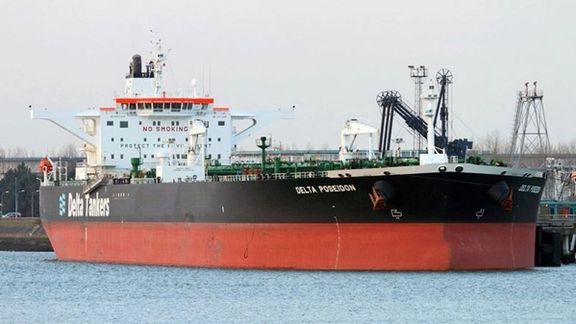
Iran has reportedly released the 49 crew members of two Greek tankers seized by its Revolutionary Guards in May after confiscation of Iranian oil by the US from a tanker off the Greek coast.
A Greek shipping ministry source said on Monday that "a very serious effort has been under way for the return of the Greek crews the soonest possible," without elaborating. Iran had said the crew were not detained and are on board their vessels.
The Greek union of commercial ships' seafarers said Sunday that Iran has agreed to release the crews so they will be replaced, allowing their return to their countries of origin as of Monday. It was not clear whether the two tankers, the MT Prudent Warrior and Delta Poseidon, would be released, a statement on the union’s website added.
Iran's foreign ministry spokesperson Nasser Kanaani did not confirm the information. "We have no confirmation at this moment about a release," he said early Monday, expressing hope that "there would be positive developments in the future".
Tehran allowed the release of the crews after the 100,000 tons of oil originally seized by the Greek authorities at the request of the US was returned to the tanks of the Iranian-owned ship Lana late August.
The Iranian-flagged tanker Lana, formerly Pegas, was seized by Greece in April and was held for months, and the US had confiscated part of its oil cargo due to sanctions. The Iranian Revolutionary Guards' navy seized the two vessels during helicopter-launched raids in the Persian Gulf on May 27, a week after Washington chartered a vessel to transfer the Iranian oil to the US.
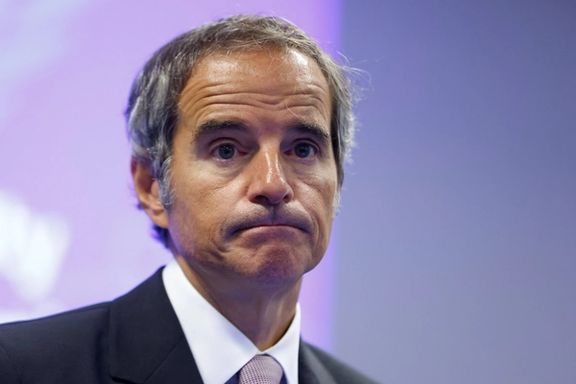
Rafael Mariano Grossi, head of the International Atomic Energy Agency, has denied Iran’s claim the agency has flouted its technical role by acting politically.
“I live under political pressure,” Grossi told a press conference in Vienna Monday on the first day of an IAEA governing board quarterly meeting.“The thing is what I do with that pressure…I’m not offended, they are pushing their national interest in the way they see it…I have an international mandate, I am not here doing what I want but what I must.”
Grossi rejected Tehran’s charge that the IAEA overstepping its role by pursuing enquiries into nuclear work carried out by Iran before 2003. Tehran has said that the agency produced a final report in 2015 but then revived its interest only after allegations made in 2018 by Benjamin Netanyahu, then Israel’s prime minister.
“This issue is very straightforward,” Grossi said. “We found [in inspections after 2018] traces of uranium in places that were never declared [as nuclear-related sites]…We are asking questions. Explain to me how this is a political use of my authorities. This is what the IAEA is supposed to do.”
The IAEA enquiry has become bound up in talks, currently paused, to revive the 2015 Iran nuclear agreement, the JCPOA (Joint Comprehensive Plan of Action), as Tehran demands the probe be dropped. The United States and three European states – France, Germany, and the United Kingdom; the ‘E3’ – have stressed Iran must satisfy the agency over the uranium traces regardless of the fate of the JCPOA.
‘Everything is interconnected’
“Everything is interconnected,” Grossi noted. The IAEA chief pointed out that reviving the JCPOA, by boosting agency access, “could facilitate us getting to broader conclusions” over Iran’ nuclear program. “Frankly, the information gap is bigger and bigger and bigger,” he said. “We don’t want to sound dramatic, but the reality is that it’s going to be extremely difficult, and we will have to work very hard, and Iran will have to be very transparent…”
Grossi accepted that his contacts with senior Iranian officials had diminished in recent weeks, despite Iran’s diplomatic representation at the IAEA headquarters in Vienna: “We were used to having an intense dialogue, including with [leading politicians in] Tehran, and I hope that dialogue will resume. …without it being resumed in that way it’s going to be very difficult. We have to see eye to eye, and work together.”
In Berlin, Israeli prime minister Yair Lapid said Monday, at a joint press conference with German Chancellor Olaf Scholz, it was time to move beyond failed negotiations, repeating his suggestion Sunday that talks to revive the JCPOA were dead.
Scholz said it was regrettable that Iran had not “as yet” responded positively to European Union proposals, circulated August 8, aimed at successfully concluding the JCPOA talks. The past four weeks have seen messages, mediated by the EU, between the US and Iran that have failed to bridge differences over what is required to revive the 2015 agreement, which the US left in 2018 prompting Iran to expand its nuclear program beyond JCPOA limits and to limit IAEA access.
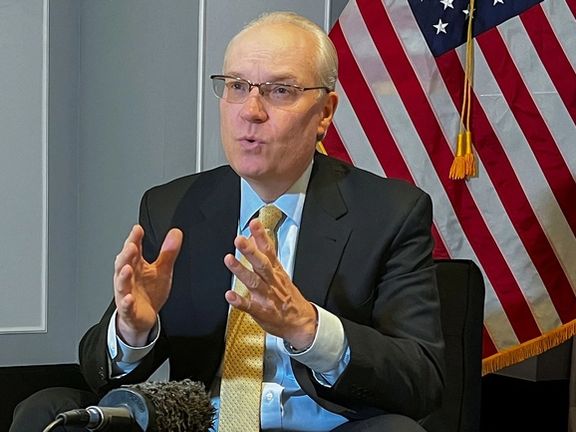
The US special envoy for Yemen says the relationship between the Houthis and Iran has been mostly a “lethal” one, with the Iranians having encouraged the Houthis to launch attacks.
Timothy Lenderking made the remarks in an interview with Arab News on Sunday in Riyadh, where he arrived as part of a diplomatic push to extend a UN-mediated truce in Yemen into a permanent arrangement.
He said the Islamic Republic has “supported the Houthis in developing their military capability, their UAV capability. And that’s been very negative,” criticizing Iran for fueling rather than tempering the conflict.
Describing the truce as an opportunity for the Houthis to show good faith and good will, he said, “From what we know after talking to Yemenis inside Yemen and around the world, there is no appetite for a return to war. There is no capacity for anybody to wish to see this happen.”
Washington’s point man for Yemen also expressed hope that Tehran’s actions would match its words -- welcoming the truce and backing an extended ceasefire -- by supporting the current positive situation as fuel ships and commercial flights are working again.
The Houthis receive military and political support from Iran in their conflict with other Yemenis, who have been backed by a Saudi-led coalition since 2014. Iran has been sharing its missile and drone technology with Yemen’s Houthis and has also supplied other proxy forces, such as the Lebanese Hezbollah and Iraqi Shiite militias.
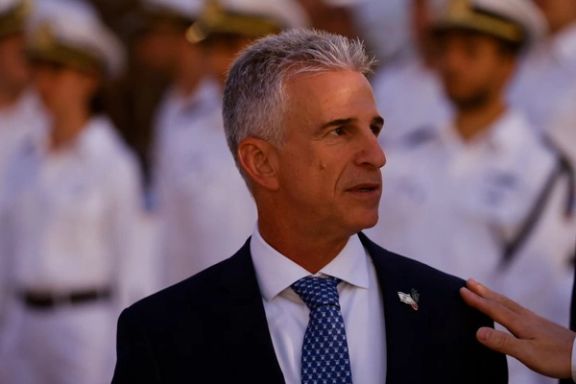
Mossad chief David Barnea says Israel will not go after Tehran’s proxies but will act against the ones who arm them, with a painful response on Iranian soil.
In his first public speech since becoming head of the spy agency in June 2021, Barnea said at a conference at Herzliya’s Reichman University on Monday that Israel would not participate in the “charade” of a renewed nuclear deal between world powers and Iran, warning that the looming accord would “not provide immunity” for Tehran from Mossad’s operations, “even if a deal is signed.”
“The Iranian leadership must understand that attacks against Israel or Israelis, directly or indirectly by proxies, will be met with a painful response against those responsible, on Iranian soil,” Barnea warned.
“The deal is based on Iranian lies. Iran has sought to build a nuclear weapon that endangers Israel’s existence. The deal will easily help them reach this goal under international legitimization,” he added.
“It is state terrorism, ordered by [Iran’s Supreme] Leader and perpetrated by the Islamic Revolutionary Guard Corps (IRGC) and other Iranian intelligence organizations. It is not spontaneous; it is planned, systematic, and strategic terror,” he said.
He underlined that terror is Iran’s substitute for diplomacy, stating that “Terror serves to help the survival of the regime, prevents any change by the Iranian public, undermines the sovereignty of its neighbors, and deters them from cooperating with Israel. Terror is used to extort countries all over the world.”
Mossad had foiled “dozens of Iranian terror attacks against Israelis and Jews abroad” recently, in Cyprus, Turkey, Colombia, and “many other places,” Barnea said. “Attempts are being made to harm American officials on US soil.”

Iran International has obtained photos of key Iranian players in global cyberattacks who are affiliated with various government intelligence agencies in Tehran.
The most recent case of a destructive cyberattack attributed to Iranian intelligence operatives was an intrusion by hackers into Albanian government computer systems that began in 2021 and ended with a massive disruption in July, according to Microsoft’s security investigations. Information was stolen and public services disrupted by the Iranian hackers, because Albania is hosting an opposition group.
Last week, Albania cut diplomatic relations with Iran and expelled its diplomats and immediately its security forces entered the embassy compound looking for evidence.
The United States imposed sanctions on Iran’s intelligence ministry and its minister, with NATO also expressing support for its member state Albania.
According to information obtained from Backdoor cybersecurity firm the head of cyber warfare of Iran’s Revolutionary Guard (IRGC) is a person identified as 61-year-old Hamidreza Lashkarian (Lashgarian) living in Tehran and apparently a university lecturer with published articles. He has a background of involvement in various IRGC intelligence operations against commercial navigation and other clandestine activities.
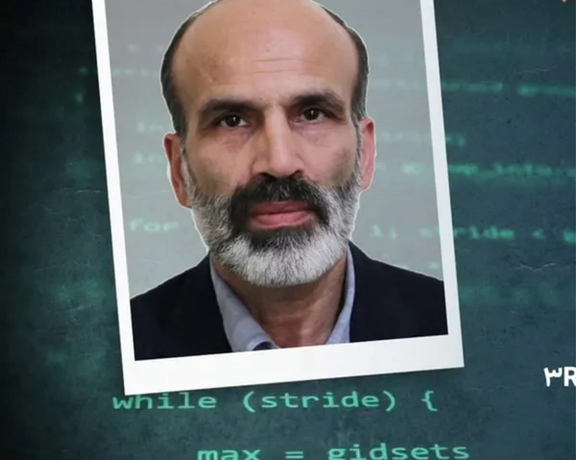
Last year, a group called Sayyad Project had targeted the airport of Albania’s capital Tirana. An anti-Iran cyber group called Lab Dookhtegan or Read My Lips revealed the identity of the person directing the cyberattack as Mohammad-Bagher Shirinkar.
Iran International has obtained his photo from Backdoor and his alias is Mojtaba Tehrani, sanctioned by the United States for his tied with the IRGC.
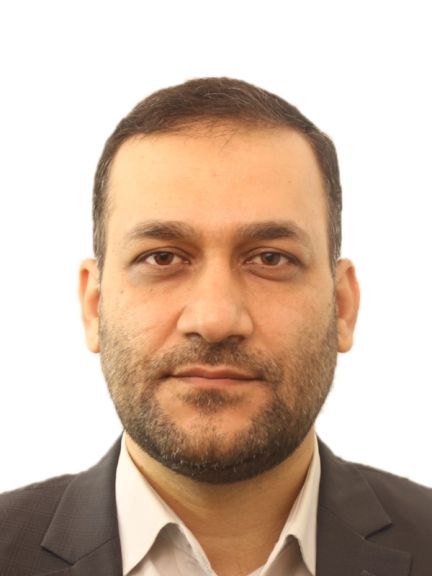
His brother Mhammad-Hossein Shirinkar is also one of the main actors in the Sayyad group. He is reportedly the head of IRGC Intelligence Inspectorate, according to Lab Dookhtegan.
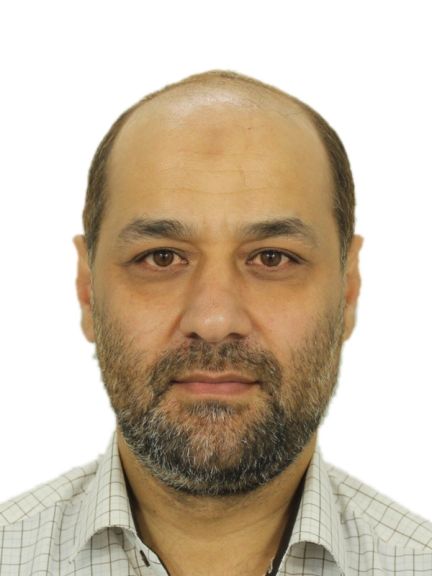
Another operator is Mehdi Hashemi Tughraljardi who is the brother-in-law of Shirinkar brothers. He is also sanctioned by the US and general director of a digital company in Tehran.
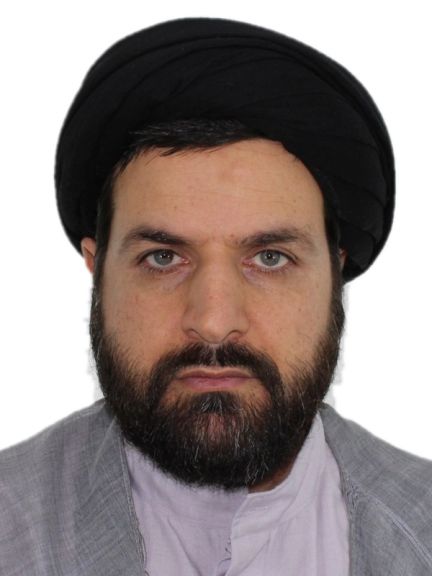
Microsoft’s investigation made clear conclusion about the cyberattacks on Albanian public digital infrastructure. “Microsoft assessed with high confidence that on July 15, 2022, actors sponsored by the Iranian government conducted a destructive cyberattack against the Albanian government, disrupting government websites and public services,” adding that Microsoft security intelligence assesses that a separate Iranian state-sponsored actor leaked sensitive information that had been exfiltrated months earlier through various websites and social media outlets.
“Microsoft assessed with moderate confidence that the actors involved in gaining initial access and exfiltrating data in the attack are linked to EUROPIUM, which has been publicly linked to Iran’s Ministry of Intelligence and Security (MOIS),” Microsoft said.
According to Microsoft, attackers were observed operating out of Iran and used tools and a wiper code previously used by other known Iranian attackers with a history of targeting other sectors and countries that are consistent with Iranian interests.